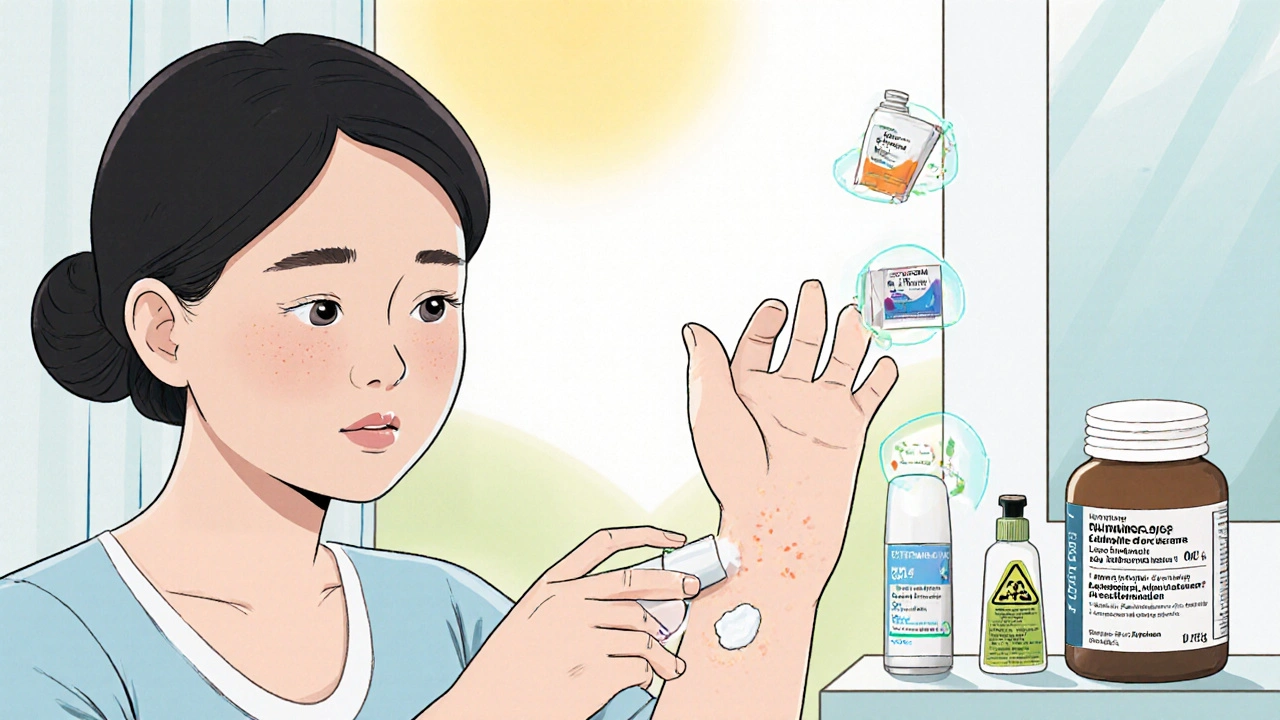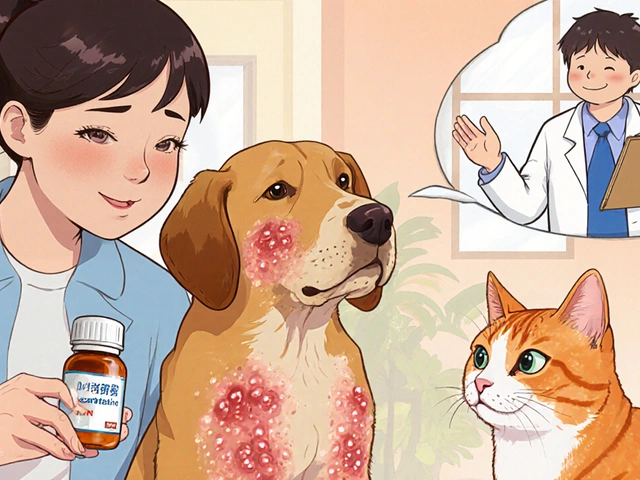Pregnancy Skin Care: Safe Products, Common Issues, and What to Avoid
When you're pregnant, your skin changes—not because of vanity, but because of hormones, blood flow, and immune shifts. Pregnancy skin care, the practice of managing skin changes during pregnancy using safe, effective products and routines. Also known as maternal skincare, it’s not optional—it’s a health priority. Many common skincare ingredients you used before pregnancy can be risky now. Retinoids, salicylic acid in high doses, hydroquinone, and certain essential oils aren’t just discouraged—they’re linked to developmental risks. But that doesn’t mean you have to live with dryness, acne, or melasma. Safe options exist, and knowing what works matters more than ever.
Hormonal acne, a flare-up of breakouts caused by increased androgen levels during pregnancy affects up to 50% of expectant mothers, often worse in the first and third trimesters. Unlike teenage acne, this isn’t about dirt or poor hygiene—it’s biology. Benzoyl peroxide in low concentrations (2.5%–5%) and topical azelaic acid are proven safe and effective. Meanwhile, safe moisturizers, hydrating products free from retinoids, parabens, phthalates, and synthetic fragrances help combat dryness and reduce itching that can lead to stretch marks. Look for ceramides, glycerin, shea butter, and hyaluronic acid. These aren’t luxury ingredients—they’re your skin’s best friends when your body is doing its most intense work.
Stretch marks, melasma (the pregnancy mask), and increased sensitivity are common, but they’re not inevitable. Sunscreen isn’t optional—it’s critical. UV exposure worsens melasma and can trigger hyperpigmentation that lasts for years. Mineral sunscreens with zinc oxide or titanium dioxide are preferred because they sit on top of the skin instead of being absorbed. Avoid chemical filters like oxybenzone, which can cross the placenta. Even if you’re indoors most of the day, UV rays come through windows. And don’t assume natural equals safe. Tea tree oil, lavender oil, and even some herbal extracts can disrupt hormones or cause allergic reactions when your skin is more reactive. Stick to simple, tested formulas. If you’re unsure, check with your OB-GYN or a dermatologist who specializes in pregnancy. You’re not being overly cautious—you’re being smart.
What you’ll find below are real, practical guides based on actual patient experiences and clinical data. From how to treat pregnancy acne without prescription drugs, to why some "natural" lotions are dangerous, to which ingredients actually help with itching and scarring—you’ll get clear, no-fluff advice. No marketing hype. No guesswork. Just what works, what doesn’t, and what you should never touch while pregnant.

Safe Topical Medications and Creams During Pregnancy: What You Can and Can’t Use
Learn which topical creams and medications are safe to use during pregnancy, from acne treatments to eczema creams. Avoid risky ingredients and use the safest options with confidence.
Detail




